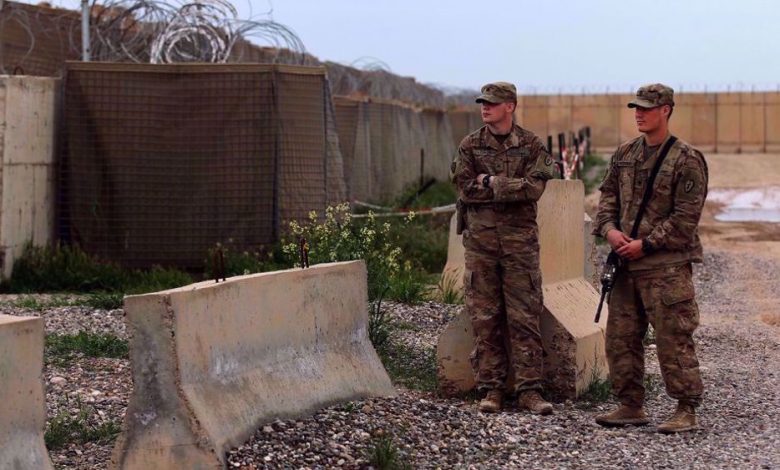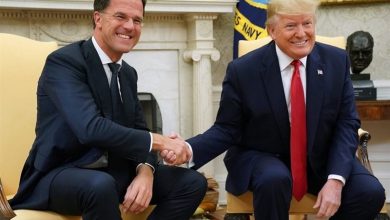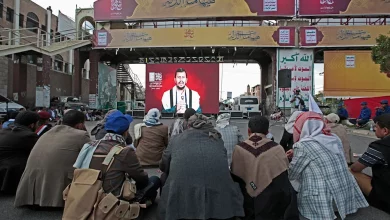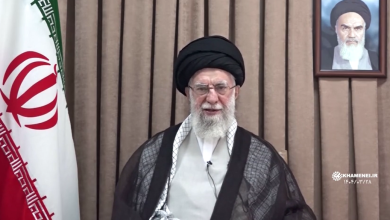First group of US occupation forces leaves Iraq: Cmdr.

The spokesman for the Iraqi Joint Operations Command has announced the withdrawal of the first batch of US troops from the Arab country based on an agreement reached between the Baghdad and Washington.
“Today, the American forces began to withdraw and the number is 500, who were announced in accordance with the agreement between Baghdad and Washington recently,” Major General Tahsin al-Khafaji said in a statement to Russia’s Sputnik news agency on Friday.
He stressed that the remaining American forces in Iraq are not combat units, adding, “We only have those who meet the support for airstrikes to target ISIS (Daesh) remnants, and logistical and advisory.”
Khafaji further said that the “withdrawal of US forces from Iraq will take place within a very short period, according to a schedule between Iraq and the United States, and according to specific timings.”
On Tuesday, acting Defense Secretary Christopher Miller said the US will reduce troop levels in Iraq from about 3,000 to 2,500 by mid-January.
The following day, Iraqi Foreign Minister Fuad Hussein confirmed that Baghdad and Washington had agreed to the pullout of 500 American soldiers after a telephone conversation between Prime Minister Mustafa al-Kadhimi and US Secretary of State Mike Pompeo.
In another development on Friday, Kata’ib Sayyid al-Shuhada, a faction of Iraq’s anti-terror Popular Mobilization Units (PMU) or Hashd al-Sha’abi, said resistance groups are waiting for the implementation of the Pentagon’s decision to draw down its forces and then withdraw completely from the country in May 2021.
“We do not trust the decisions by the US, but we hope that it is honest in this step,” said Kadhim al-Fartousi, Kata’ib Sayyid al-Shuhada spokesman.
Baghdad, he added, is still negotiating with Washington through joint committees to schedule deploying US troops outside Iraq.
“There is no alternative to the decision on the complete withdrawal of US forces from Iraq. This is because the withdrawal is a popular political demand, which was approved by the parliament on behalf of the will of the Iraqi people, so the government is obliged to implement it,” Fartousi underlined.
In an opinion piece published in USA Today on Friday, Geoff LaMear, a Marcellus Policy Fellow at the John Quincy Adams Society, warned that the longer US soldiers stay in Iraq, the longer they are in harm’s way.
“Military action proved counterproductive against both Kata’ib Hezbollah and Iran, so the solution is a full military withdrawal,” LaMear wrote. “The inevitable criticism of this move is that Iran would fill the US gap. But the militarized US presence actually drives Iraqis closer to Iran.”
“The US has not established deterrence with Iran. US military presence in Iraq risks harm to personnel which in turn can bring the US into a war with Iran.”
Anti-US sentiment has been running high in Iraq following Washington’s January 3 assassination of top Iranian anti-terror commander Lieutenant General Qassem Soleimani and senior Hashd al-Sha’abi commander Abu Mahdi al-Muhandis, in addition to several other comrades, outside the Baghdad airport.
Just two days later, Iraqi lawmakers unanimously passed a bill mandating the expulsion of all foreign troops from the country.
Washington, however, has threatened sanctions should US troops be expelled from Iraq instead of ending the occupation of the Arab country.
Last month, resistance groups halted their military operations against the US troops, including rocket attacks, providing that Washington does not persist in maintaining its military presence in Iraq.
They, however, threatened to “use all the weapons at their disposal” against American forces if they refuse to leave Iraq.







